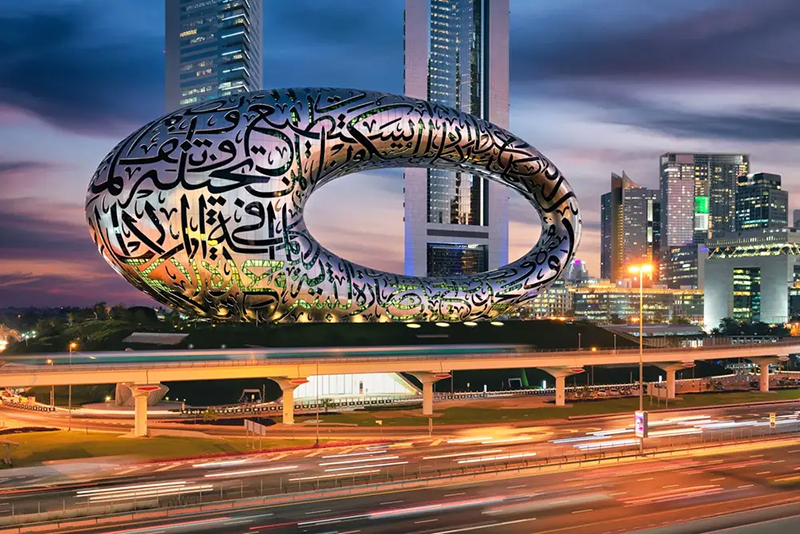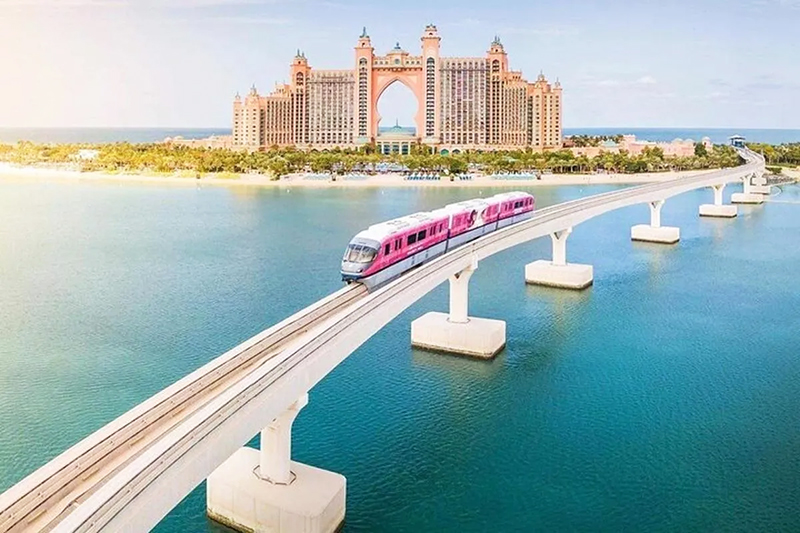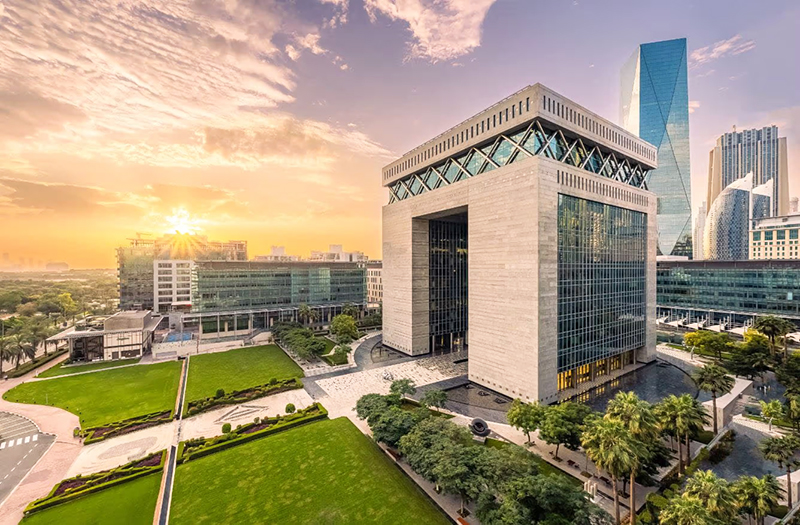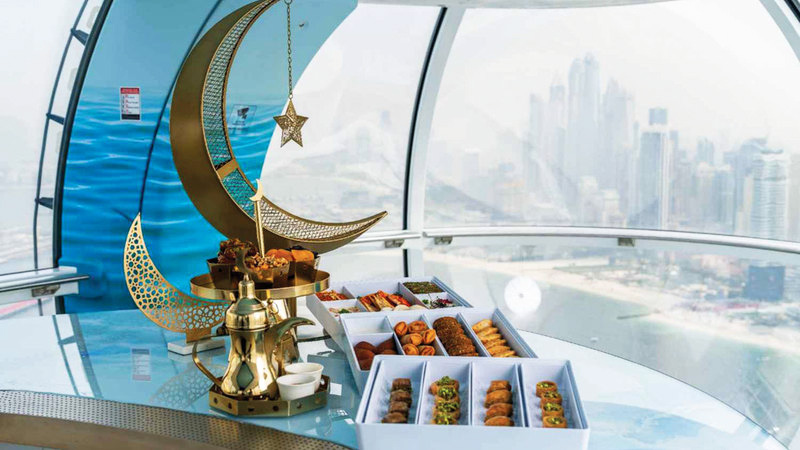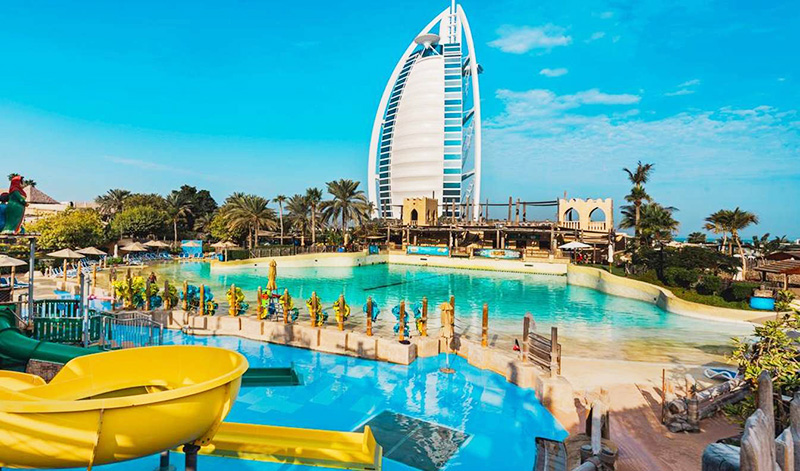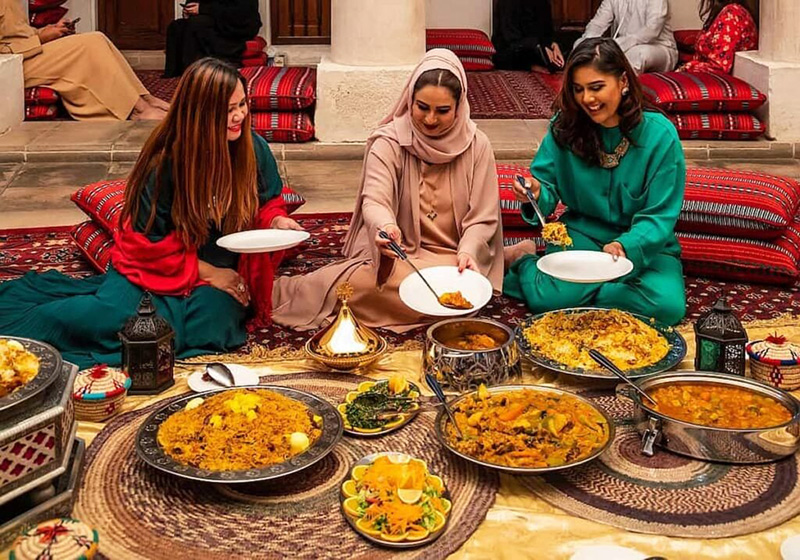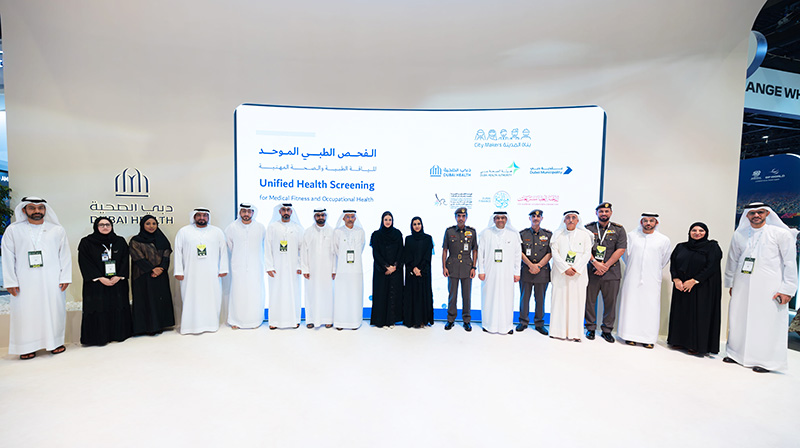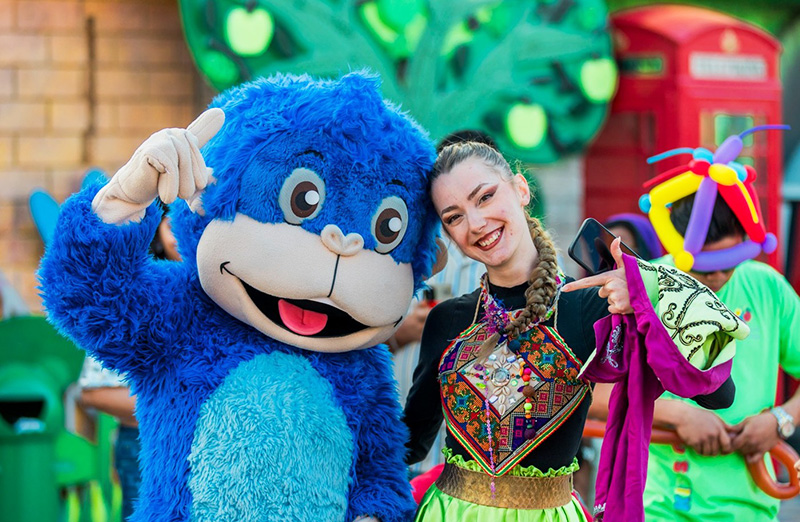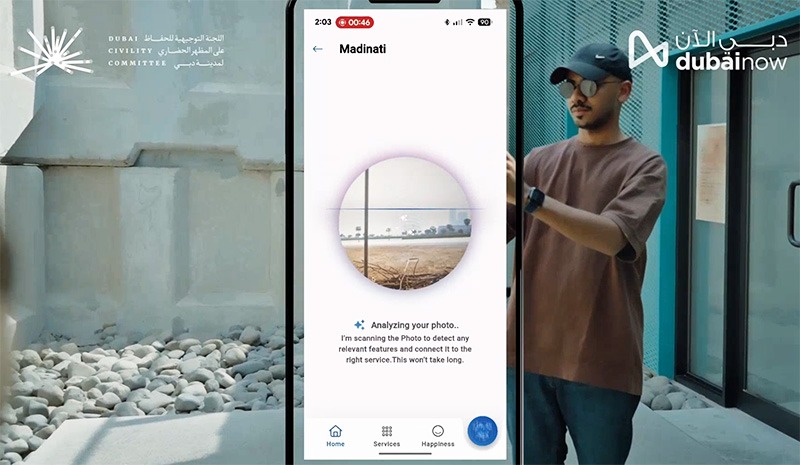
“Our humanitarian journey expresses our identity, our nature, and our faith,” declared His Highness Sheikh Mohammed bin Rashid Al Maktoum, Ruler of Dubai, emphasizing that generosity and solidarity in the most trying circumstances reflect core values of identity and authentic belonging. That ethos is being realized on the ground at Dubai International Humanitarian City (IHC), a concept that has grown into an integrated platform coordinating global aid without any religious or political discrimination, and a pioneering model of humanitarian and logistical work worldwide.
Founded in 2003 under the directives of Sheikh Mohammed bin Rashid and the management of the Dubai Investment and Development Authority, spearheaded by Mohammed Al Gergawi (then Chairman of the Authority), Dubai International Humanitarian City, later nicknamed “Dubai Humanitarian,” was established as a permanent platform to support global relief efforts. It was hailed as the world’s first free zone dedicated to humanitarian aid activities, fully backed by the government and embodying the United Arab Emirates’ efforts to alleviate human suffering.
Establishment and Background
The IHC was created in 2003 through a blend of government and international cooperation, effectively merging what were formerly known as Dubai Aid City and Dubai Humanitarian City into the world’s largest humanitarian logistics hub. It was set up as an independent, non-profit free zone authority and quickly became a magnet for United Nations agencies, Red Cross/Red Crescent societies, and global charities, in addition to international logistics and technology companies. Today, the IHC’s community counts around 500 personnel from more than 68 nationalities.
Over the following years, the IHC significantly expanded its infrastructure. Initially operating on a 30,000-square-meter site, it relocated in 2011 to its current strategic location near Al Maktoum International Airport and Jebel Ali Port, tripling its footprint to 90,000 square meters and later expanding to roughly 135,000 square meters. This new location dramatically cut down emergency response times: the hub is now just a 4–8 hour flight from about two-thirds of the world’s countries. As Walid Ibrahim, coordinator of the UN Humanitarian Response Depot (UNHRD) network under the World Food Programme, told Gulf News, “60% of the humanitarian aid shipped by the [UNHRD] network to the world comes from Dubai”, underlining the city’s status as a global humanitarian logistics center.
In 2005, Dubai further consolidated its humanitarian initiatives by integrating the Dubai Humanitarian Services City (under Dubai Holding) with Dubai Aid City (under the Dubai Ports, Customs and Free Zone Corporation). This move created the largest relief and humanitarian services center of its kind in the Middle East. Mohammed Al Gergawi, then CEO of Dubai Holding, noted that the new project’s extensive resources would enable it to provide the aid sector with all necessary facilities, a step that, in his words, “would make the United Arab Emirates one of the world’s foremost humanitarian service hubs.”
In April 2024, the IHC unveiled a refreshed identity under the name “Dubai Humanitarian,” marking the start of a new phase of cooperation and solidarity. The city’s mandate is to streamline the delivery of humanitarian assistance and manage global logistics chains with high efficiency. It has outlined a strategy to lead the global humanitarian supply network in preparedness and crisis response, enhancing its capacity to coordinate among governments, charities, and the private sector. The IHC’s vision is to build a more sustainable and humane world by empowering the relief community with innovative tools and knowledge to meet future challenges. To that end, it has forged partnerships with academic institutions and technology companies to enrich its expertise and develop smart solutions for aid delivery. One key concept is to ensure aid is delivered at the right time wherever people need it, rather than sitting in storage for long periods, an approach that helps reduce the time and cost of preparation and distribution.
Major Initiatives and Projects
Over the years, Dubai’s humanitarian city has rolled out numerous initiatives to bolster preparedness and efficiency in relief operations. It launched the Global Humanitarian Impact Fund (GHIF) as part of its 2015–2020 strategy to finance innovative projects in the aid sector. In 2020, in partnership with the World Health Organization (WHO), the IHC established a semi-automated “Kitting Center” that uses advanced systems to rapidly assemble relief kits. This facility’s automation allows teams to put together aid packages faster while cutting down time and cost.
The addition of a 500-square-meter cold-chain storage facility for vaccines and medicines has further strengthened the humanitarian community’s ability in Dubai to distribute emergency vaccines efficiently.
On the sidelines of the COP28 climate summit in late 2023, the IHC organized the first Global Humanitarian Hubs Summit, along with a “Call to Action for a Sustainable Humanitarian Supply Chain” contributing to the international dialogue on reducing the aid sector’s environmental footprint. The city has also continued to support regular forums such as the Dubai International Humanitarian Aid & Development Conference (DIHAD), which began in 2004 and brings together relief leaders from around the world. A notable historical example of the IHC’s rapid response came in 2010, when it outfitted a relief plane with about 90 tons of supplies to assist victims of Haiti’s devastating earthquake.
Partners and International Cooperation
The IHC works in collaboration with a broad network of partners. Its membership includes major UN agencies like the World Food Programme (WFP), UNICEF, and the UN High Commissioner for Refugees (UNHCR), alongside organizations such as Islamic Relief, the Emirates Red Crescent, the International Committee of the Red Cross (ICRC), and numerous local and international NGOs.
Private-sector companies have also lent crucial support. Firms such as Aramex, UPS, and Emirates Airline have contributed their logistical muscle to the hub’s operations. Aramex, for example, formed an official partnership with the IHC to leverage its global network for swiftly transporting food, medicines, and vaccines. In a recent case, UPS worked with the IHC to deliver emergency aid to earthquake-affected communities in Nepal. Meanwhile, Dubai’s Logistics Center (in cooperation with the UAE Ministry of Foreign Affairs) helps coordinate relations with government donors, expanding the IHC’s reach through new partnerships and joint initiatives in service of a broader humanitarian mission.
Responding to Global Crises
As the crisis in Gaza unfolded in October 2023, Dubai’s humanitarian hub swiftly coordinated medical relief via a fast-track air bridge through Egypt. A World Health Organization logistics center in Dubai, for instance, dispatched 80 tons of life-saving medicines, including insulin, to Gaza at a cost of over $1.7 million, reaching nearly two million Palestinians. In February 2024, the IHC facilitated the first WHO airlift of about 11 tons of supplies from its stockpiles, followed in April 2025 (under Sheikh Mohammed bin Rashid’s directives) by another 56.8-ton shipment of vital medical supplies worth around AED 4.3 million, sent to Egypt for delivery into Gaza. In total, the WHO delivered more than 175 tons of health provisions to Gaza via Dubai in 2025 alone. This timeline highlights how the IHC rapidly mobilizes its mechanisms and logistical resources, bolstered by high-level leadership, to ensure critical aid reaches Gaza’s most vulnerable residents.
When conflict erupted in Sudan in early 2023, Dubai’s humanitarian city quickly stepped up to support displaced populations. In May 2023, a cargo plane carrying roughly 80 tons of shelter and relief supplies including blankets, sleeping mats, and solar lamps provided by UNHCR, was dispatched to aid more than 27,000 Sudanese refugees. Days later, under the IHC’s coordination, the WHO transported over 10 additional tons of medical provisions, benefiting around 49,000 Sudanese patients and displaced people. These operations demonstrated the IHC’s capability to rally its capacities and member warehouses (including UN agency stockpiles in Dubai) to support relief partners worldwide, also tapping into its Global Humanitarian Impact Fund to swiftly finance the logistics.
During the COVID-19 pandemic, the IHC proved to be a pivotal linchpin in the global supply chain. It forged logistics alliances with Emirates Airline, Dubai Customs, and DP World to facilitate the distribution of vaccines and medical supplies worldwide. According to official statistics, the hub handled enormous volumes of aid: it processed over 80% of the personal protective equipment (PPE) distributed globally in the WHO-led response. In the first months of the pandemic, 566 large shipments, weighing a total of 1,610,159 kilograms and valued at an estimated $63.7 million, were channeled through Dubai to affected communities around the world. Thanks to this logistical role, the UAE delivered more than 1,742 tons of pandemic aid (vaccines, medical equipment, and test kits) to 128 countries, helping protect approximately 1.7 million frontline healthcare workers. The IHC’s warehouses have continued to operate around the clock to meet any emergent health crisis, in line with the humanitarian ethos of “leaving no one behind.”
In other major emergencies, the IHC has likewise played a crucial role. After a devastating earthquake struck Turkey and Syria in February 2023, the hub, under WHO’s supervision, helped send an initial 37 tons of urgent medical kits from its warehouses to Istanbul, and prepared additional deliveries for hard-hit areas in Syria. It also financed much of the transport through its humanitarian fund, in collaboration with international partners. The IHC’s experience in disaster response stretches back years; during Hurricane Irma in 2017, for example, its relief network organized an air convoy to Haiti loaded with over 90 tons of emergency supplies. Such swift, successive responses embody the city’s humanitarian philosophy, practically affirming that those suffering in crises are never forgotten.
Scale of Aid and Impact
Official figures underscore the massive scale of the IHC’s contributions to global relief. According to annual reports for 2023, aid dispatched from Dubai’s humanitarian hub was valued at roughly $123 million, delivered via 1,201 shipments to 118 countries and totaling around 16,000 tons of relief materials. The data shows a clear sectoral breakdown: health assistance ranked first at $38.7 million in 2023, followed by refugee shelter aid at about $30.4 million, and logistics services at $29.4 million. These figures mark a notable increase from 2022, highlighting the growing strategic role of the IHC.
Media reports have noted that member organizations at the IHC channeled nearly one billion dirhams of aid over a span of three years, and over one billion dirhams in the single year of 2013 alone. To date, the hub has handled more than 1,300 relief shipments worldwide with a cumulative value exceeding $130 million. Officials report that the IHC has quadrupled its transaction volume since its inception, reaffirming Dubai’s status as a vital humanitarian center connected to over 100 global organizations.
Global and Humanitarian Impact
More than two decades on from its founding, Dubai has transformed into a premier global humanitarian hub rivaling the world’s major capitals, a testament to the IHC’s far-reaching impact. International leaders have lauded the UAE for hosting the planet’s largest humanitarian logistics cluster, a status that has significantly enhanced global response capabilities. Relief shipments from Dubai now reach countries on every continent, forming a critical bridge between donors and those in need.
The IHC has served as a primary launch point for aid in a multitude of crises. Its logistical infrastructure has been instrumental in delivering help to flood victims in Pakistan, to communities devastated by wars in Yemen and Syria, and to survivors of earthquakes in Japan and Indonesia. Dubai’s hub also played a key role in the international response to the 2004 Indian Ocean tsunami. More recently, the IHC has supported populations affected by the COVID-19 pandemic and contributed to global vaccination drives. It has introduced new benchmarks in humanitarian operations as well, for instance, its initiative to create a humanitarian logistics databank, a global system for tracking relief supplies, stands out as a technological step forward that promotes greater automation and transparency in aid delivery.
The city’s influence extends beyond the physical distribution of aid. The expertise, technology, and international cooperation fostered by the IHC have reshaped concepts of humanitarian work in the region. Dubai has become a key meeting place for humanitarian conferences and a nexus linking government and private-sector efforts. A public communiqué, tellingly titled “Global Safety Net,” noted that the IHC has been building a worldwide community that preserves the dignity of beneficiaries while reducing their suffering. This drive is inspired by Sheikh Mohammed bin Rashid’s ethos that “the UAE has chosen to fill the world with impact, not noise.” That legacy is embodied by the IHC every day, it is, in effect, a lifeline for the world’s most vulnerable.
Looking ahead, hopes are pinned on the International Humanitarian City’s continued role in closing humanitarian gaps and overcoming challenges. The IHC remains a beacon of humanitarianism, striving as its executive director has described, to connect relief work with creative sectors in order to improve the lives of less fortunate communities. True to the vision of “Dubai Humanitarian,” the city pledges to spare no effort in extending bridges of hope across the world, with full commitment to the principles of humanitarian service and human solidarity.

